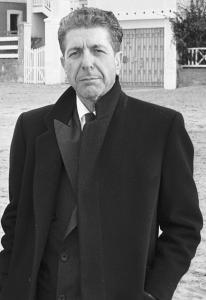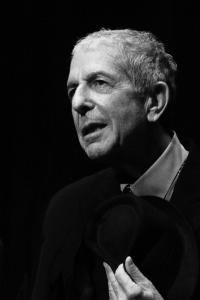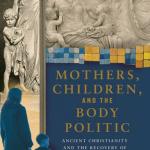We decided to put our two sons in swimming lessons last Fall. The boys always seemed like fish out of water, but we still wanted them to gain more confidence in their aquatic abilities. I usually took a book with me when I drove them to their lessons. Early October last year I decided to read Matti Friedman’s book Who by Fire: Leonard Cohen in the Sinai about Cohen’s trip to Israel during the 1973 Yom Kippur War. As I slowly started the book, I was reminded that aluminum bleachers are one of the most uncomfortable things to sit on. A few days later it was Saturday, October 7th, 2023.

That Saturday revealed a lot about our world. News of the attack slowly streamed in with uninvited commentary often included. The barbarity of the surprise attacks shocked many of us from the comfort of our living rooms. Troubling as the news of the attacks, a bloody line was drawn in the sand: the response by an assortment of characters to justify them. A year later, not much seems that different.
And here was this book on my table about Leonard Cohen in Israel, 50 years ago, during the Yom Kippur War of October 1973. Also a sneak attack, during another moment when the nation of Israel was caught slumbering. Some point to the hubris over their earlier victories against neighboring nations that caught Israel unawares in 1973. Historians will continue to discuss and debate the meaning of these events. However, in some ways, Cohen’s voice has helped me wrestle with the suffering of this conflict more than the theorists in our midst.
I became a fan of Cohen’s music right around the time of his death in 2016. I discovered that I enjoyed his music more than his more famous contemporary, Bob Dylan (no offense, Bobby). Cohen mixes a lot of Jewish and Christian imagery in his music. He had a lifelong interest in religion and the divine. His spirituality kept him open to questions about the divinity (at one point he was studying as a Buddhist monk), but he never disconnected himself from his Jewish identity. Evidently, this connection to his Jewish roots is what drove him to head to Israel in October 1973 after hearing about the attack. Friedman does a good job piecing together Cohen’s story among the Jewish troops, which he ends up mostly singing songs to them with a borrowed guitar. He would leave Israel a changed man with his biggest hits ahead of him (Halleluiah his most recognizable).
At one point in Cohen’s trip, he has a revelation―one that disturbs him. As he assists in helping wounded soldiers, deeply saddened by their injuries, someone notices that Cohen is upset at the carnage. The person comments not to worry since these are Egyptians. This statement triggers Cohen. He realizes that he is relieved that these bodies were not Jewish―the people on his side of the conflict.
This is how Cohen puts it:
Helicopter lands. In the great wind soldiers rush to unload it. It is filled with wounded men. I see their bandages and I stop myself from crying. These are young Jews dying. Then someone tells me that these are Egyptian wounded. My relief amazes me. I hate this. I hate my relief. This cannot be forgiven. This is blood on your hands (Friedman, 164).
I have been obsessed with this disquieting moment. Cohen’s response reveals how easy it is to dehumanize. In fact, the few times he commented about his experience he made sure to speak of both Jewish and Egyptian casualties. Cohen’s awareness of his relief shows that war is not a ballgame where we just pick a side and root for the home team―war always produces victims. This dehumanizing gesture is particularly egregious with regards to the desecrating of the images of kidnapped victims.
I learned many years ago from a Christian worldview class taught by Dr. David Horner at Biola University that good songwriting provides an interesting way to learn about life. The fact that it is added to music is an added bonus, and makes it accessible. Horner seemed to favor Dylan. I remember being excited that a college professor could talk about theology, philosophy, and Bob Dylan. Moreover, over the last year and a half I have been studying Joan Baez’s connection to Catholic figures like Thomas Merton, Dorothy Day, and Cesar Chavez. Therefore, why not read and listen to Leonard Cohen for understanding the times especially since he had a somewhat firsthand experience of this history.
Thus I want to close with a reflection from the title track of Cohen’s last album You Want It Darker. There are Jewish and Christian themes weaved throughout this song: honoring God’s name, the incarnation of Christ, the horrors of the Shoah, and with all that, Cohen submitting to God’s will.
Magnified, sanctified, be thy holy name
Vilified, crucified, in the human frame
A million candles burning for the help that never came
You want it darker
Hineni, hineni
I’m ready, my lord
Cohen’s departing song, and throughout much of his work, illustrates both the frustration with the suffering in history, but also our ability to question the meaning of it. He models the interrogative voice toward the divine in the light of the horrors of history. But what about human cruelty? Who do we send our questions about it? Do we blame God for that as well? It seems that lately we are barraged with images and videos of acts of human cruelty. As Cohen notes, it’s getting darker.
As this last album shows, Cohen never fully stepped away from the imagery of the scriptures. And even though he proposes questions toward the Hebrew God, he remained rooted in his Jewish identity. But like the lesson from the Sinai, he stepped away from 1973 committed to humanity, to the victims on all sides. Whereas some today continue to provide unsatisfactory explanations for the past year, perhaps today what we need more of is Cohen’s music as a call for prayer about our frailty and brokenness. Whatever lesson we can possibly learn about the last year, let it be something that leads to healing.















